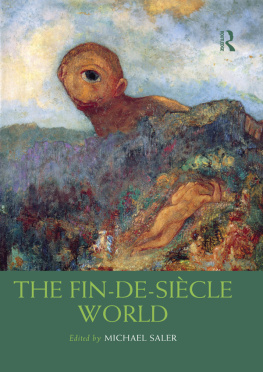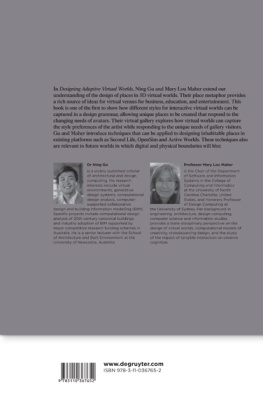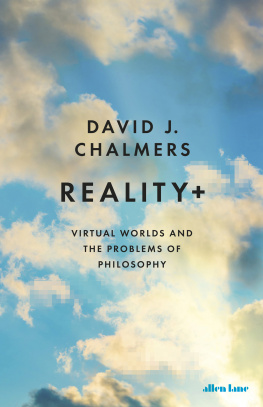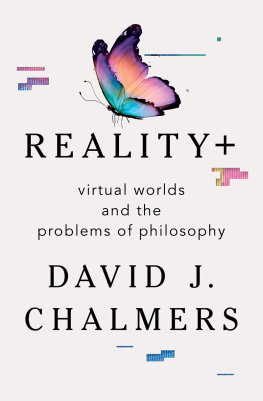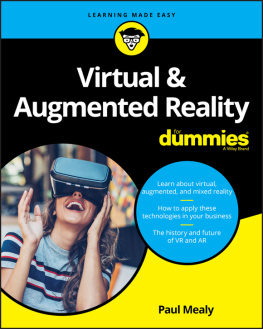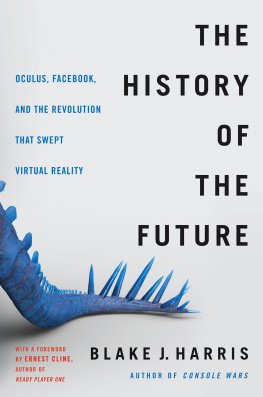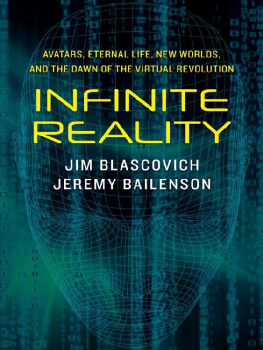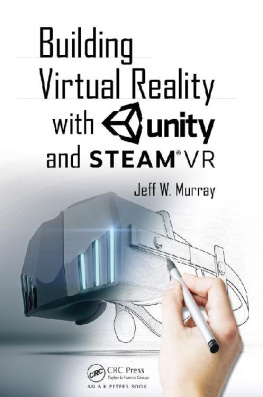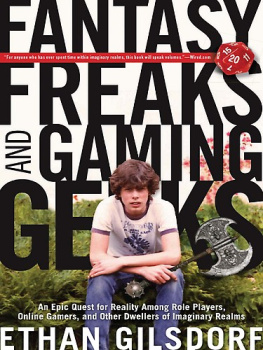AS IF
As If
Modern Enchantment and the Literary Prehistory of Virtual Reality

Michael Saler


Oxford University Press, Inc., publishes works that further
Oxford Universitys objective of excellence in research, scholarship, and education.
Oxford New York
Auckland Cape Town Dar es Salaam Hong Kong Karachi
Kuala Lumpur Madrid Melbourne Mexico City Nairobi
New Delhi Shanghai Taipei Toronto
With offices in
Argentina Austria Brazil Chile Czech Republic France Greece
Guatemala Hungary Italy Japan Poland Portugal Singapore
South Korea Switzerland Thailand Turkey Ukraine Vietnam
Copyright 2012 by Oxford University Press, Inc.
Published by Oxford University Press, Inc.
198 Madison Avenue, New York, New York 10016
www.oup.com
Oxford is a registered trademark of Oxford University Press
All rights reserved. No part of this publication may be reproduced, stored in a retrieval system, or transmitted, in any form or by any means, electronic, mechanical, photocopying, recording, or otherwise, without the prior permission of Oxford University Press.
Library of Congress Cataloging-in-Publication Data
Saler, Michael T., 1960
As if : modern enchantment and the literary prehistory of virtual reality / Michael Saler.
p. cm.
Includes bibliographical references and index.
ISBN 978-0-19-534316-8 (cloth : acid-free paper)ISBN 978-0-19-534317-5 (pbk. : acid-free paper) 1. Fantastic, The, in literature. 2. Virtual reality in literature. 3. Marvelous, The, in literature. 4. Imaginary societies in literature. I. Title.
PN56.F34S17 2011
823.08760908dc22 2011010276
1 3 5 7 9 8 6 4 2
Printed in the United States of America
on acid-free paper
For
Chun Li
(The Real One)
TABLE OF CONTENTS
ACKNOWLEDGMENTS
I have spent many years not writing this book; somehow there was always just one more fantasy novel requiring research. Over this long span of time numerous people have helped me and Im happy to materialize the virtual appreciation for them that has been running through my head and heart: Douglas A. Anderson, Mike Ashley, David Biale, Matt Blessing, Kristin Bluemel, Matt Bowers, Will Chan, Deborah Cohen, Michael Collins, George Connell, Tom Crook, Patrick Curry, John Davies, Michael D. C. Drout, Lindsay Duguid, Matthew Feldman, Richard Gilmore, Martin Jay, Roger Johnson, S. T. Joshi, Kyu Kim, Charles Kinbote, Cathy Kudlick, Norma Landau, Joshua Landy, Jon Lellenberg, Erin Li, Peter Mandler, Ted Margadant, China Miville, Samuel Moyn, Philip Nord, Kathy Olmsted, Heather Owen, Susan Pederson, Donald Pollock, Judith Priestman, Eric Rauchway, Benson, Joyce, and Bethel Saler, Peter Stansky, Steve Stockdale, Kathy Stuart, Maiken Umbach, Helen Vaughan, Robin Walz, Louis Warren, and Benjamin and Mary Louise Wright.
This history of imaginary worlds had its genesis during a year in residence at the Stanford Humanities Center, sister site to Shangri La, and Im appreciative of its generous support. I benefited from being able to discuss my ideas at meetings hosted by the New York Consortium for Intellectual and Cultural History; Concordia College; the North American Conference on British Studies; and Oxford Brookes. Individuals at other institutions were also of inestimable help: Minny M. Oralia, at the University of Muri, patiently answered my queries about the works of the philosopher de Selby; and Christopher Blayre, at the University of Cosmopoli, set me straight on foraminifera. At the University of California, Davis, Assistant Dean Steven Roth helped me secure funds for publication costs.
Earlier versions of several of this books chapters have appeared in journals and collections, although the material published here has been substantially revised and expanded. I am grateful to the editors and publishers of the following for giving me the opportunity to work out my arguments: the American Historical Review; The Historical Journal; Philosophy and Literature; The Space Between; and Vernacular Modernism: Heimat, Globalization, and the Built Environment, edited by Maiken Umbach and Bernd Hppauf (Stanford University Press, 2005).
At Oxford University Press, editors Shannon McLachlan and Brendan ONeill shepherded this book from virtuality to tangibility, and production manager Rick Stinson ensured that it looks as nice as it does. I hope As If is judged by its cover, for artist George OConnor captured the sense of wonder I struggled to put into words. (He is the author of the enchanting series The Olympians, whose virtual abode resides at www.olympiansrule.com.)
Thanks are also due to the following for kindly granting me permission to reproduce copyrighted material: The Heritage Bookshop; Lail M. Finlay; Arthur M. Dula and The Robert A. & Virginia Heinlein Prize Trust; Norfolk Museums & Archaeology Service; and the Sherlock Holmes Society of London.
New Wye, Appalachia
Cedarn, Utana
Davis, California
July 2011
AS IF
INTRODUCTION

A map of the real world is no less imaginary than a map of an imaginary world.
Alberto Blanco
FROM IMAGINARY TO VIRTUAL WORLDS
The modern West has been called disenchanted, but that is a half-truth. It can equally be deemed an enchanted place, in which imaginary worlds and fictional characters have replaced the sacred groves and tutelary deities of the premodern world. Many spend protracted periods of time inhabiting their imaginations, residing in virtual worlds populated by characters drawn from the media. As a writer for the New York Times observed, today there are hundreds of thousands, perhaps millions of people whose grasp of the history, politics and mythological traditions of entirely imaginary places could surely qualify them for an advanced degree.
Such escapist behavior is usually ascribed to fantasy fans, who have been the most visible adherents of imaginary worlds. (Soap opera fans and romance readers tend to be less noticeable in public than people who wear Spock ears or Hobbit feet.)
Even those who would never consider themselves as acolytes of Harry Potter or Luke Skywalker sojourn in imaginary worlds today, perhaps more than they realize. Practices that once seemed the exclusive, and rather odd, preserve of fantasy fans have now entered the mainstream. References to geographies of the imagination have become commonplace: water-cooler conversations are as likely to be about the boss in Mad Men as ones own employer; everyday metaphors and similes are often rooted in the imaginary soil of nonexistent places. There are public commemorations of fictional worlds and characters (Ulysses readers have their Bloomsday) and physical analogues to unreal settings (Proust connoisseurs can stroll through his fictional town of Combray, courtesy of the real town of Illiers incorporating itself as Illiers-Combray in 1972). Online web pages and discussion groups are dedicated to innumerable fictional creations, from Jane Austen to Austin Powers.
Next page

